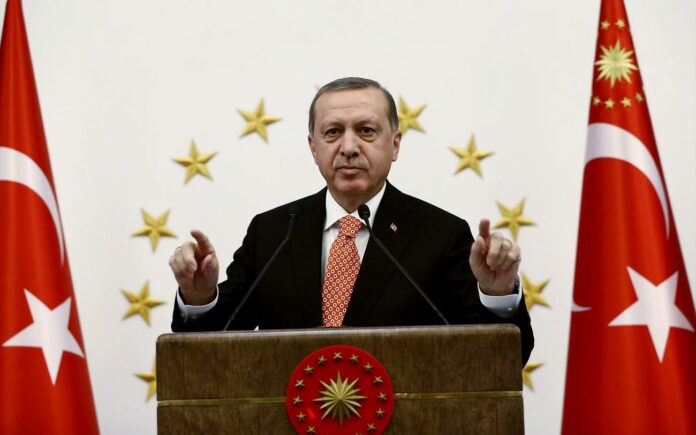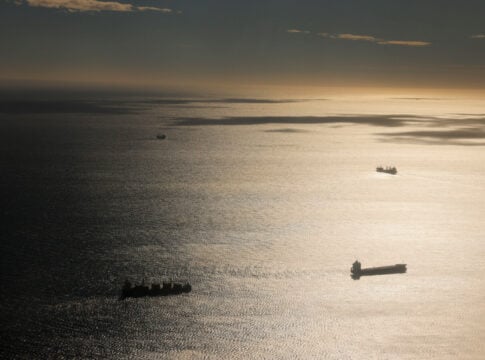Turkish President Recep Tayyip Erdogan took a direct swipe at the Turkish republic’s Kemalist lineage on Thursday, and by extension engaged in an eyebrow-raising exercise in revisionist history.
“We gave away the islands (in the Aegean) through the Treaty of Lausanne (1923),” he told a group of elected local authorities, adding that the purges that followed the July 15,2016 coup attempt in the neighboring country were “a new war of independence”.
The increasingly majoritarian Erdogan was referring to the Turkish war of independence between 1919 and 1922, which led to the formation of a new Turkish republic under Kemal Mustafa, who was later bestowed the honorific title of “Ataturk”.
On Thursday, Erdogan criticized the Turkish delegation that signed the 1923 Treaty of Lausanne, which among others ended hostilities between Greece and a new Turkish state, and between the Entente states and the new Ankara government. The treaty also engineered an unprecedented exchange of populations: Christians of Asia Minor expelled to the Kingdom of Greece and Muslims in the latter expelled to the nascent Turkish republic, the successor of the Ottoman Empire.
“In 1920 they threatened us with the Treaty of Sevres, and they finally persuaded us with the Treaty of Lausanne. Some tried to impose Lausanne,” Erdogan told a mostly partisan crowd, before expanding on a mishmash of revisionist history, maritime law and echoes of Ankara’s 40-year policy of exceptionalism in creating claims in the Aegean.
“The islands, which if we care to shout (from the western Asia Minor coast) we’ll be heard on the other side (the islands), we gave away with Lausanne. What will now happen with the continental shelf? What will happen with the airspace and land? We’re still fighting for all of these. Those responsible for this (situation) are those (of the Turkish delegation) who sat at the table of negotiations for this treaty (Lausanne). They did not rise to the occasion, and thus we face this problem. If the (July 2016) coup had succeeded, maybe an agreement would have come before us even worse than Sevres,” he said.
The islands Erdogan was referring to in the eastern Aegean were lost by the Ottoman Empire — which held nominal control — to Greece as a result of naval warfare and troop landings in the First Balkan War of 1912. Nevertheless, all of the islands – i.e. Lesvos, Chios, Limnos, Samos etc. — were populated by a wholly ethnic Greek and Christian Orthodox population, with a continuous history dating back millennia.
The Dodecanese islands further south, however, which also had a predominately Greek population dating back to pre-antiquity, were awarded to Italy in the wake of the Treaty of Lausanne. Italy was the occupying power of the Dodecanese islands since 1911. The well-known island of Rhodes retained a small but important Turkish-speaking minority, which remains a prosperous part of the island today, while Kos hosted a tiny Muslim minority.
The Dodecanese islands formally joined Greece in 1947 with a peace treaty between Rome and Athens. Greece was a WWII victor, the Italian government in 1947 was a successor to the defeated Mussolini regime, which was part of the Axis, while Turkey was a neutral state throughout the war.
Two islands that didn’t join the group of Aegean isles that united with Greece in 1912, or the other group in 1947, were Imvros and Tenedos in the extreme northeast Aegean, close to the Dardanelle straits. Both islands were awarded to Turkey with the Treaty of Lausanne.
In 1923 both islands hosted thousands of ethnic Greeks and retained a Hellenic culture for most of recorded history. Today, only a few dozen ethnic Greeks remain on Imvros (Imbros).














